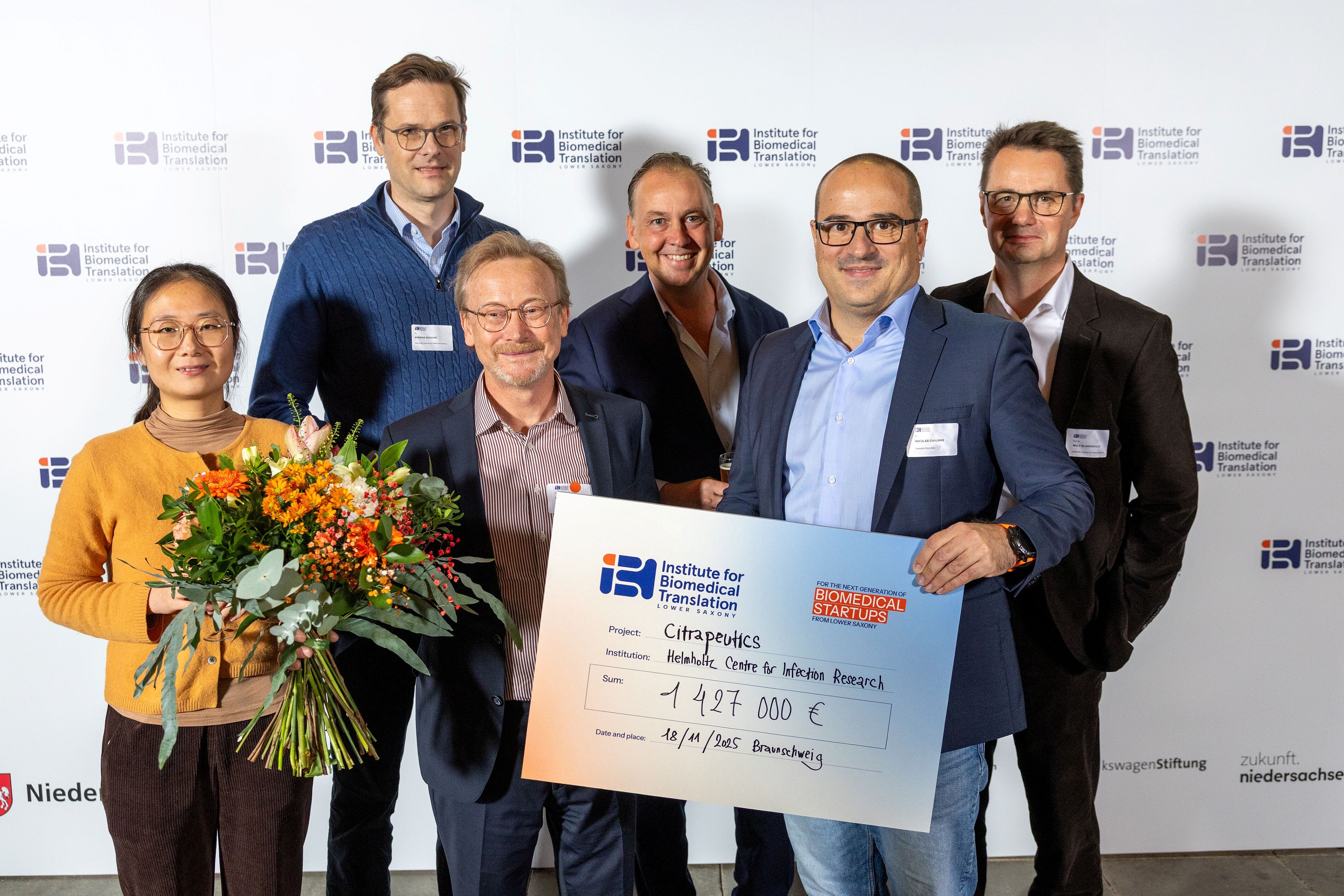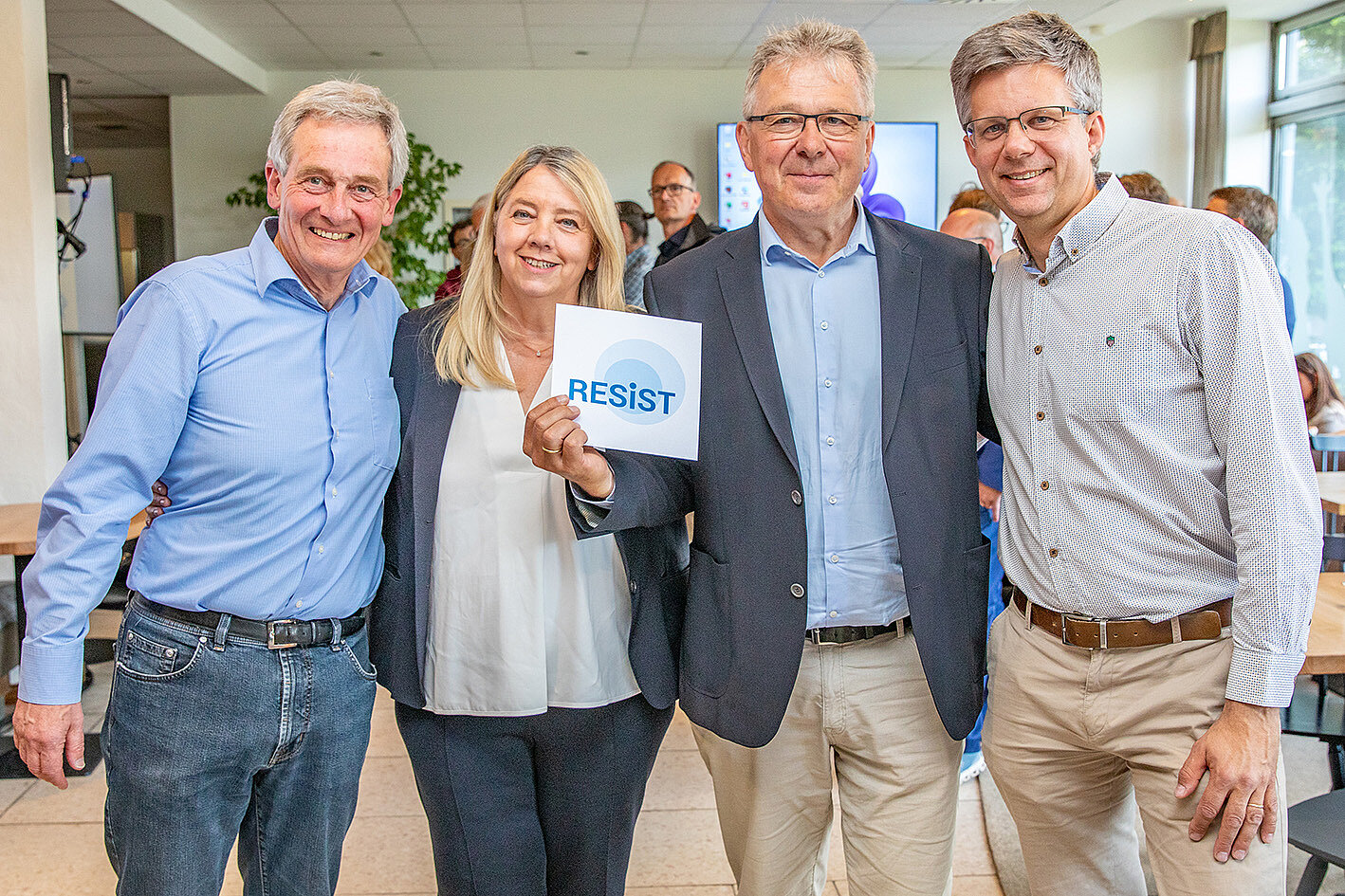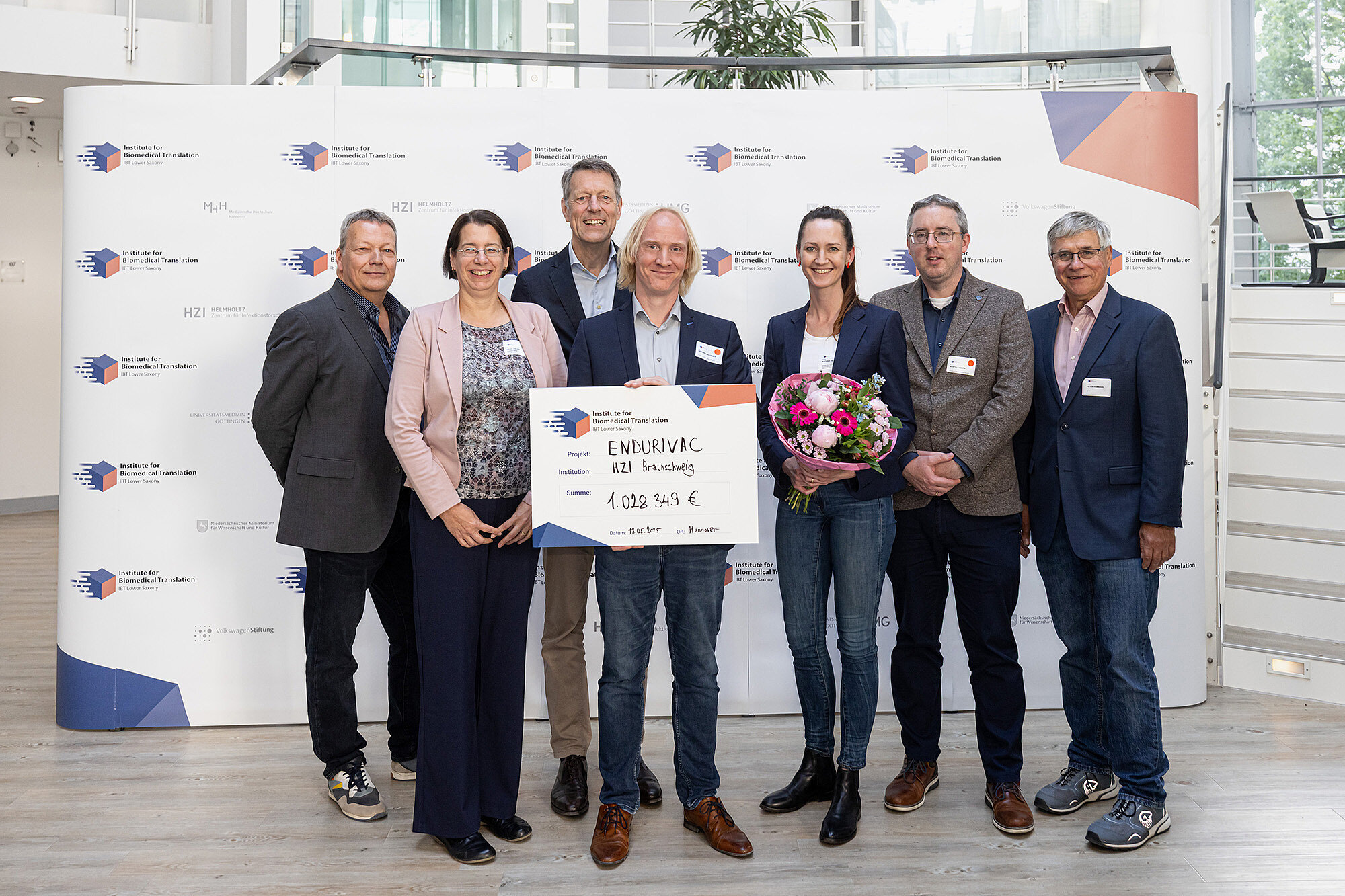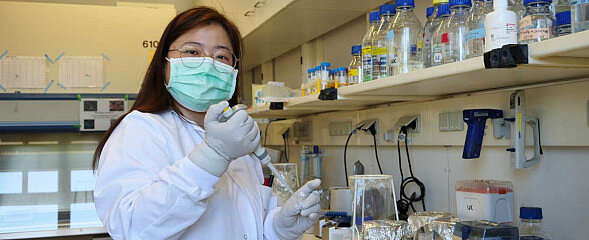At the fifth portfolio conference of the IBT at the TRAFO Hub in Braunschweig on 18 November 2025, two projects were selected as winners after competing against five other research teams from Lower Saxony. The funding is intended to enable the rapid clinical trials of the research results and their commercial success through the founding of startups.
These are the winning teams:
Citrapeutics (Helmholtz Centre for Infection Research in Braunschweig)
Citrapeutics aims to revolutionize cancer treatment and offer patients an alternative to conventional immunotherapies. The project team under the lead of PD Frank Pessler, head of the research group “Biomarkers for Infectious Diseases” at the TWINCORE – Centre for Experimental and Clinical Infection Research, is developing small-molecule inhibitors for a novel oral immunotherapy for cancer. The plan is to further optimize the currently most promising drug, Citra01, and to generate additional ones. TWINCORE is a joint institution of the HZI and MHH.
RNA Healer (Hannover Medical School)
RNA Healer is developing an RNA-based drug for patients with advanced chronic liver fibrosis. The goal is to reduce devastating scarring and improve liver function in the long term.
A total of seven teams from leading life science research institutions in Lower Saxony, Leibniz University Hannover, Hannover Medical School, University of Göttingen, University Medical Center Göttingen, and the Helmholtz Centre for Infection Research in Braunschweig, presented their ideas at the IBT event. The presented projects cover a wide range of biomedical innovations in the fields of immunology, neurodegeneration, medical robotics and imaging, AI-based solutions, and drug development.
The jury, chaired by Prof. Peter Hammann (Consultant, formerly Sanofi) and vice-chaired by Prof. Helga Rübsamen-Schaeff (AiCuris), faced a correspondingly difficult decision. "I am delighted by the impressive quality of the proposals and the ever-increasing interest in our activities. With IBT funding, we aim to accelerate the best project ideas, promote exchange between science and industry, and facilitate new cross-site collaborations in Lower Saxony," said Prof. Thomas Sommer, Director of IBT Lower Saxony.
From idea to funding
The newly funded IBT projects will receive a total funding of nearly €2.5 million over a two-year period. The first phase of funding focuses on rapid scientific and market-oriented development. The goal is to transform research ideas into business concepts and enable the timely establishment of a company with a business plan. The subsequent phase focuses on commencing business operations and securing further external financing. With these two new projects, the IBT portfolio now comprises ten projects with total funding of almost €11 million.
At the conclusion of the event, the sixth call for proposals for next year's award was published. The next portfolio conference will take place on 5 May 2026 in Hanover.

![Dr Charlotte Schwenner [Translate to English:] Charlotte Schwenner](/fileadmin/_processed_/6/9/csm_Charlotte_Schwenner_7952cfe0a7.webp)



